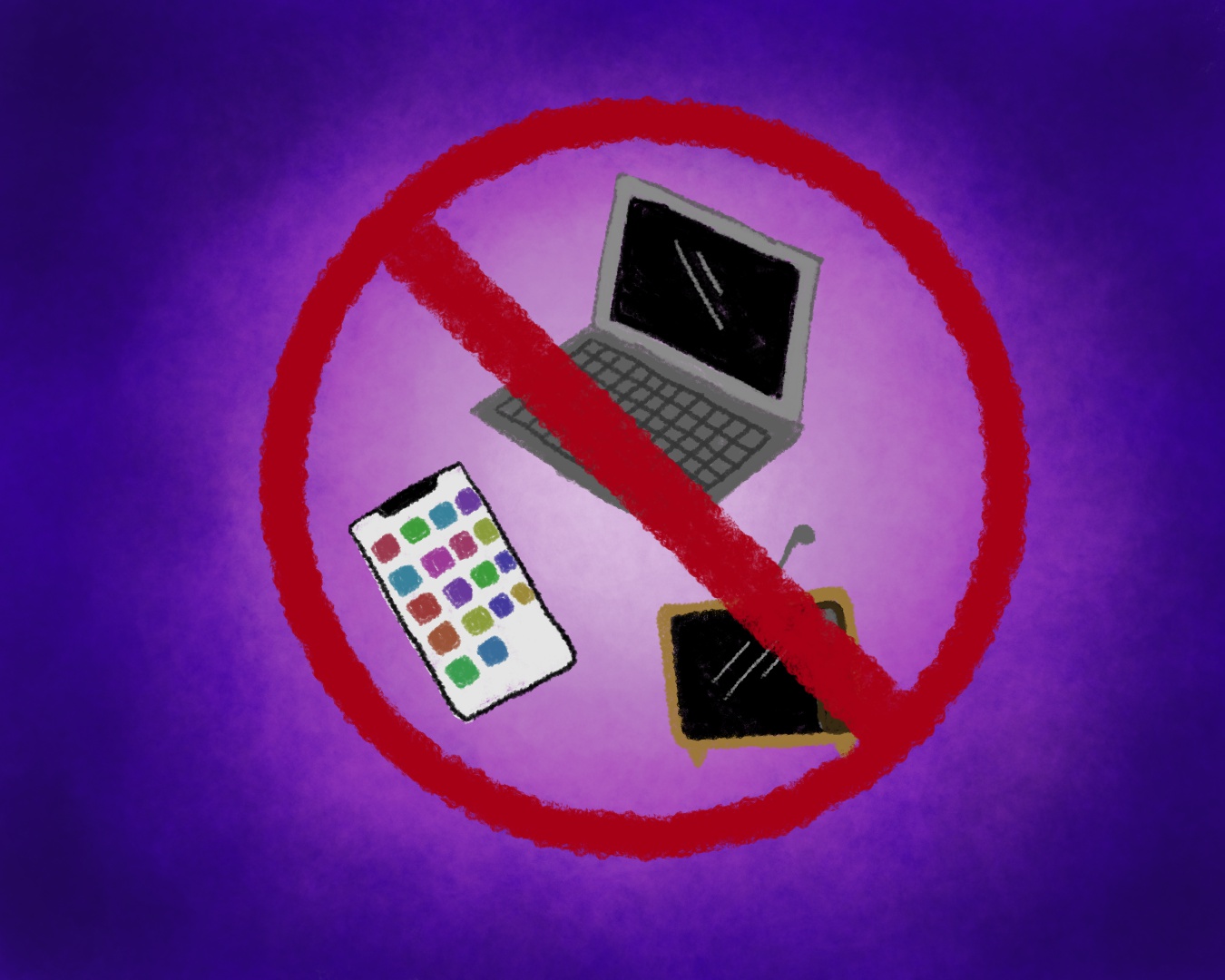Abstract:
For me, the decision to embark on a phoneless day was born out of necessity, not just scientific curiosity.
College summers are long. This summer, I busied myself with various part-time jobs and internships, while staying at my parents’ home in the city. A few months in, I noticed that instead of feeling busy or overwhelmed by all these tasks, I mostly just felt oversaturated with screen time.
My phone became the key to organizing all my activities. My work schedule was on there. Every social arrangement — be it a movie or a brunch date — was organized a week in advance on WhatsApp.
I clicked, scrolled and refreshed a hundred times a day to ensure I wasn’t missing out on an important task. Even during the peak of summer when the sunlight could cause screen glare, I relied on my phone for just about everything.
As the hot, city summer days wore on, I began feeling nostalgic for overnight camp as a kid. Instead of refreshing Slack all afternoon, I would paddle canoes and kayaks across an open lake. My best friends lived with me in rustic cabins, so there was no need to wade through a Facebook group chat for two weeks in order to make plans.
I yearned for those simpler, phoneless summers. Something had to change, or else my compulsive checking habits would become self-sabotage for my well-being.
It was time to channel my inner academic. I set out to perform a study to explore the implications of going phoneless for an entire day, and I was to be the guinea pig.
Hypothesis
My phone was the cause of my anxiety and oversaturated feelings. Going phoneless for 24 hours will make me feel happier, more refreshed, and more appreciative of my surroundings.
In turn, it will improve my mood for the remainder of the summer.
Method
The night before I conduct my phoneless experiment, I sit on a swirly chair in my parents’ den. I cradle my iPhone in my hand, and my dog lies by my feet. I text my friends to tell them about my upcoming experiment.
I must be utterly phoneless, and I should also avoid my computer and TV. I give my employer my landline in case of an emergency. I turn everything on “Do Not Disturb.” I then lock my phone in my parent’s filing cabinet, and so the experiment begins.
Observation
9:30 a.m. — I wake up, and I feel groggier than usual. I generally set an alarm for 8:00 a.m. so that I get eight hours of sleep. Today, with my alarm clock locked away, I oversleep. After I shower and dress, I instinctively reach for the iPhone on my nightstand so that I can check Instagram and Twitter. Then, I remember its absence. A part of me feels naked without a device.
10:15 a.m. — I join my mom to run errands around town. In the car, my mom struggles to remember the name of a Chinese restaurant our family ate at last Christmas Eve. I know I don’t have a device to look it up, but the thought lingers in my mind. Where did we get those egg rolls?
11:25 a.m. — As I meander through the grocery store, paranoia creeps in. One of my friends left his bike at my house the day before, and I have no means of checking in on him to ensure he retrieved it. Am I being a bad friend by going phoneless? Also, what if my boss called me today, and I wasn’t even aware of it? Am I missing out on an important Outlook email or Slack message?
1:00 p.m. — I am back at home, and the anxiety is subsiding. After making myself lunch, my instincts tell me to check Twitter again. Instead, I see a paper copy of The New York Times lying on the kitchen table. I haven’t read a paper copy of the newspaper in ages. I didn’t even know our family still ordered them. I begin to scan the paper.
2:13 p.m. — What does the word “percolate” mean? I highlight it on the newspaper and search for a physical dictionary around the house. I realize I haven’t used a physical dictionary in years. By the time I find the word, it dawns on me that I’ve spent two hours just perusing articles.
2:35 p.m. — Oh no! Did I have work today? I know I checked my calendar the night before, and it said that I didn’t have another shift until Wednesday. Let me just double check. Wait, I can’t check my phone, remember? That’s the whole thing. Well, maybe just for a moment. Oh god. I hate this. I hate this.
3:30 p.m. — To distract from my worries, I decide to take a long swim in my family’s pool. I want to measure how many laps I would need to take in order to complete a full kilometer. Normally, I would measure this distance out on my phone’s calculator app. Instead, I use mental math. I have a feeling I’m way off, but I enjoy the swim anyways.
4:15 p.m. — Without Reddit or YouTube to entertain me, I try playing some music on my ukulele. I am shocked at how few songs I have memorized. Halfway through playing, I realize my instrument is out of tune, but the tuner app is on my phone. So much for that idea.
4:25 p.m. — I take my dog on a walk in the neighborhood park. For once, it feels nice not to have a podcast blasting in my ears. Instead, I focus on my surroundings. I walk slowly, and I play close attention to the couples playing tennis, the old man juggling bowling pins and the macho teens playing basketball. I am fully present walking alongside my dog, and I bask in the sun.
6:15 p.m. — Yesterday, I made plans to meet my friend Anne for dinner. I begin driving to her house, but without having Waze for assistance, I am worried I will get lost along the way. I decide to leave 20 minutes earlier than usual. No way I’ll be late then.
7:28 p.m. — I am half an hour late to Anne’s house. I ended up going east for 15 minutes on one street when I was supposed to go west. I explain all this — including my decision to drive phoneless — in a huff of panic to Anne when I arrive at her door. She is not impressed.
10:05 p.m. — After a long drive, I return home. I read some of the book “Call Me by Your Name” on my couch until I feel sleepy. I instinctively want to check Slack again, but then, as I settle down, I fall asleep.
Discussion and Conclusion:
Going phoneless for a day was not an easy fix to any of my summer anxieties. If anything, abandoning my main communication device for 24 hours made me feel even more guilty and worried. All I wanted to do was check and make sure I wasn’t missing out on something crucial.
This study may be useful in the academic world — or in the world of family dinner table politics — when an adult makes the bold statement that teens and young adults are addicted to their devices.
We are not addicted to our devices, per se, but we live in a world that almost demands us to be. Our professional and social lives require us to be alert constantly, and simply locking our phones away does not absolve us of our responsibilities.
Still, there were some moments in my experiment — walking my dog through the neighborhood park, laughing with my friend Anne over veggie burgers — where I was grateful for being phoneless. When alone, a phone is a necessity to keep us tuned into the endless happenings of our world, but when engaged in a task with others, a phone can detract from us fully appreciating a moment.
Feel free to use this study in the future, next time your parents try to tell you to just drop your devices and you’ll be happier. Like most technology, our relationships with our smartphones are a lot more nuanced than that. Of course, just remember to cite your sources!
















